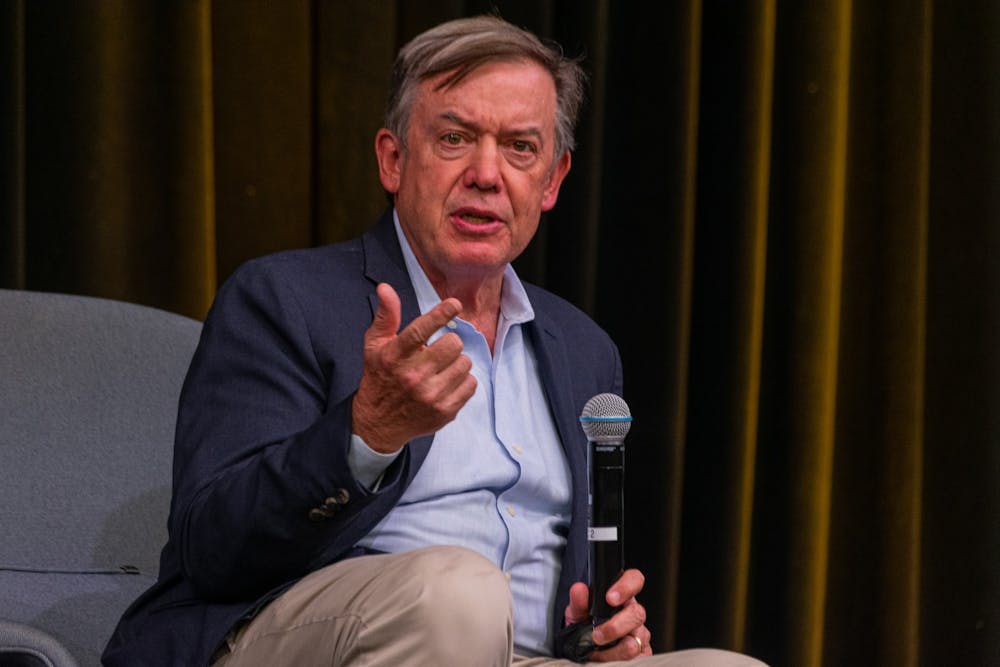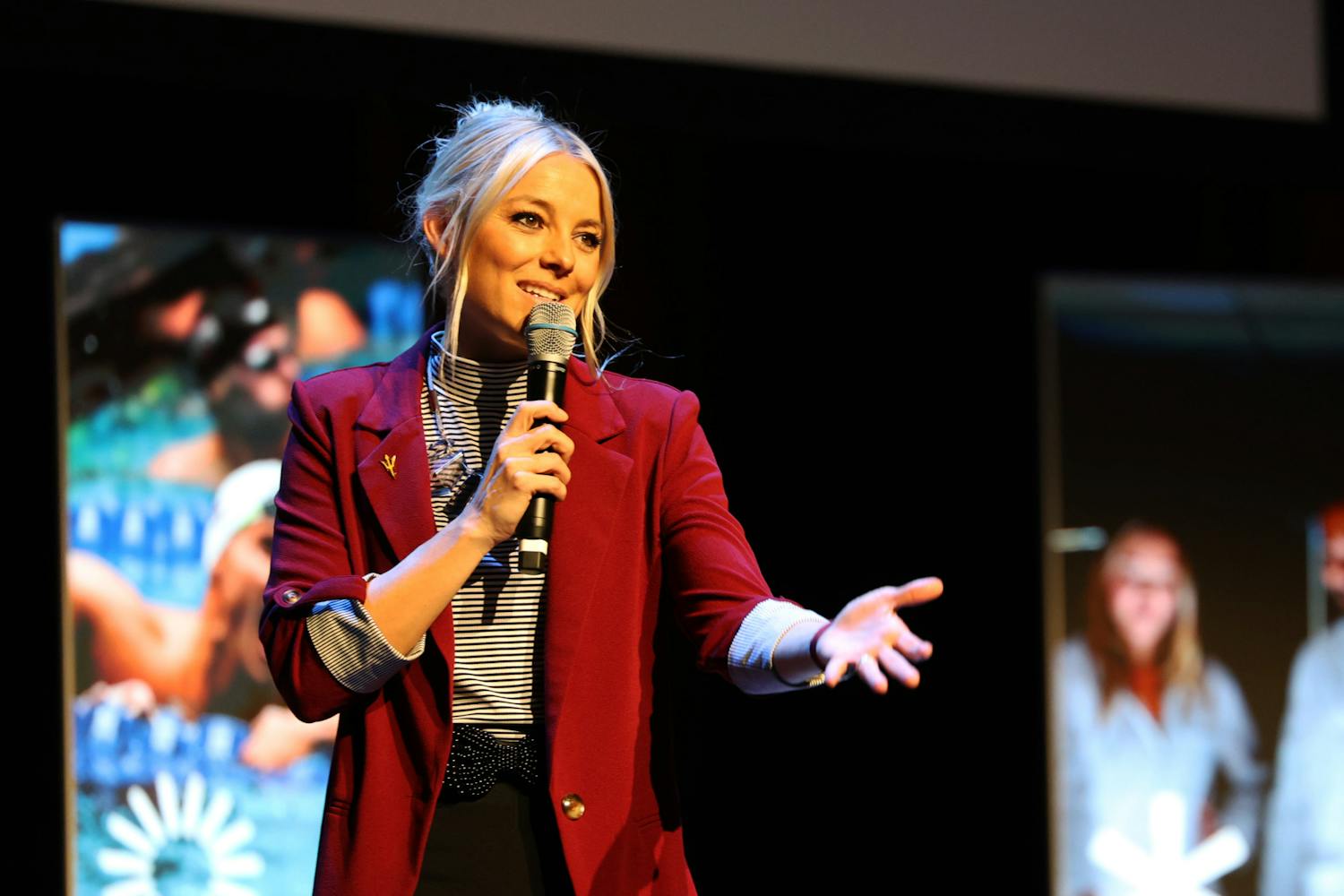The Associated Students of ASU hosted a forum with President Michael Crow answering student questions regarding COVID-19 protocols, sexual violence prevention and ASU Counseling Services Tuesday at the Student Pavilion.
While giving an update on the University since the return of students to campus, Crow encouraged students to get vaccinated and wear masks in order to continue on-campus and in-person learning.
"If you care about yourself, you're vaccinated; if you care about others, you're masked," Crow said.
Crow then answered questions submitted by students and asked by Nicole Mayberry and John Hopkins, presidents of the Graduate and Professional Student Association and Undergraduate Student Government Tempe, respectively.
One submitted question asked when students could expect to be able to attend class and other events without masks. Crow explained that although the University's positivity rates are low, the rate of community spread in Arizona is still too high to do away with masks entirely.
READ MORE: ASU won't be able to require COVID-19 vaccines anytime soon
"When that number goes down to a certain level, (when) we have some sense of where we're going to be, then we'll probably change our policies," Crow said. "But we're not at that level now. We're still flashing bright red, meaning we have substantial community spread in central Arizona."
Despite this, Crow said students can expect a fully in-person graduation ceremony in December 2021 for students and their family members.
Sexual violence prevention
Another student asked a question about updates to sexual violence prevention programs and resources at the University, during which Crow deferred to Joanne Vogel, vice president of student services.
"We have unified various services, Sexual and Relationship Violence Prevention, victim advocacy, health and counseling are now all unified together," Vogel said. "There was an ask to pull (victim advocates) out of the police department and to bring them into a different location on campus, which we have done so you can find our victim advocates at Health and Counseling Services."
Additionally, the University has added links to apps on the Sexual Violence Awareness and Prevention website assisting students in formulating a plan or finding resources following an incident.
Counseling Services
Two students asked about counseling resources, wondering how the University planned to address burnout from the return to in-person classes and why the soonest appointments for counseling are a month out.
According to the Student Health Portal on MyASU, as of Sept. 21, the next available appointment for counseling consultation is Oct. 21.
"If you feel like you're approaching the edge, and you've got no way back home, from a burnout feeling, or just overloaded, you've got to raise your hand and get some help," Crow said. "You need to go and talk to a counselor, talk to a professional to help you to work your way through this, and we have these professionals available."
Aaron Krasnow, associate vice president of ASU Counseling Services, said he wasn't aware of the month-long wait for counseling appointments and encouraged students who have trouble scheduling appointments to reach out for help.
Krasnow also promoted counseling's Open Call and Open Chat option to students who need immediate help around the clock.
"We have 24/7, 365 days a year, global access to a professional counselor whether you're on campus or not," Krasnow said. "All of that is available to any ASU student for free."
Crow and other members of University leadership encouraged students to reach out for help with specific issues impacting their academic experiences.
The next student forum with Crow is scheduled for Oct. 27 at 11 a.m. on the Downtown Phoenix campus.
Reach the reporter at rpriest2@asu.edu and follow @reaganspriest on Twitter.
Like The State Press on Facebook and follow @statepress on Twitter.
Continue supporting student journalism and donate to The State Press today.

Reagan Priest is a managing editor, overseeing and working with the six digital desks at The State Press. She previously worked as a social justice reporter for Cronkite News and as a digital production intern at The Arizona Republic.




